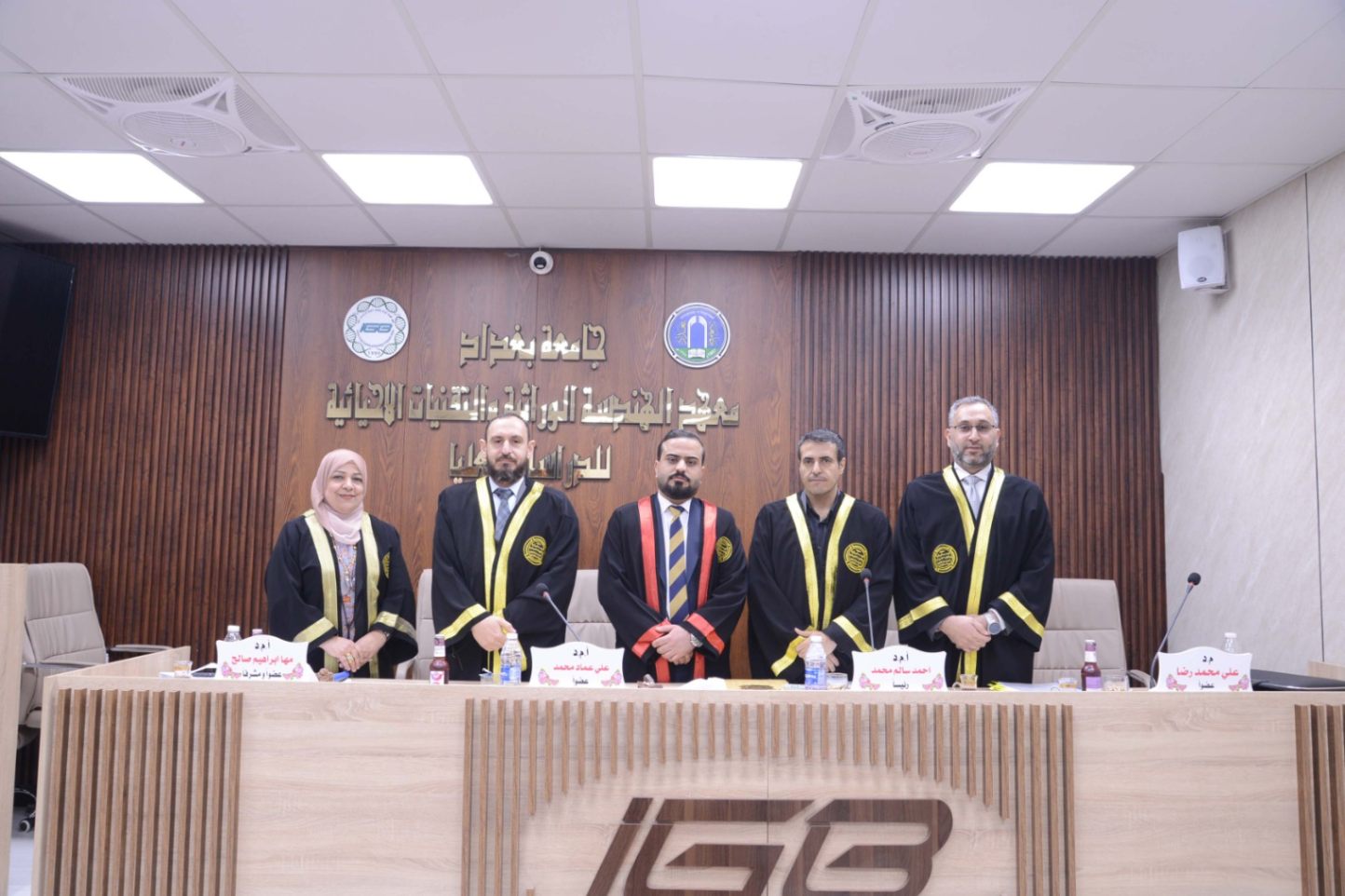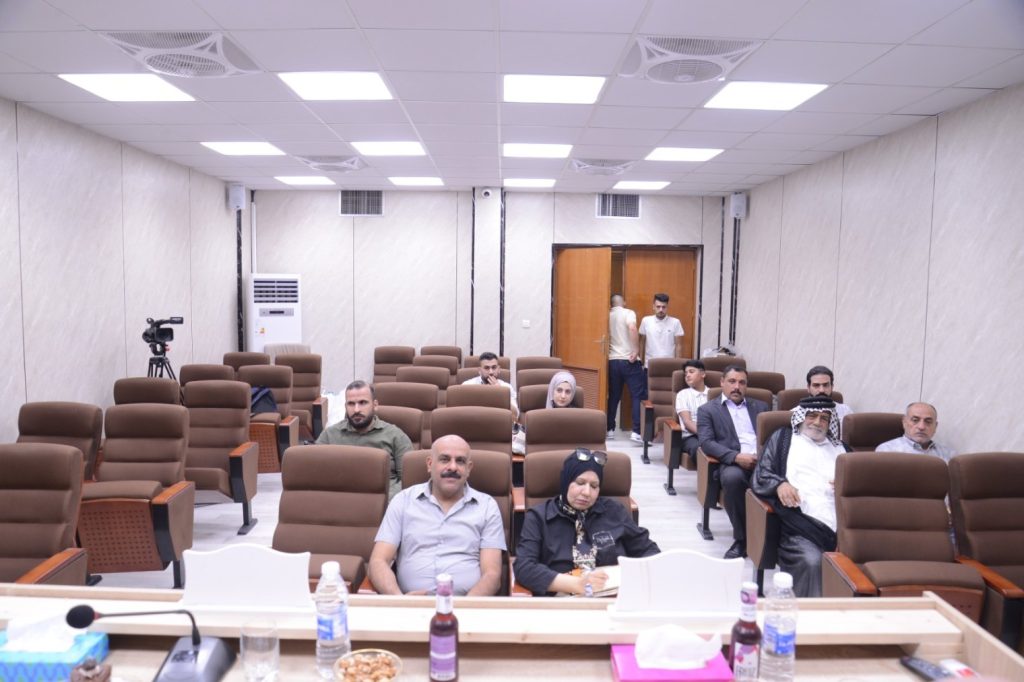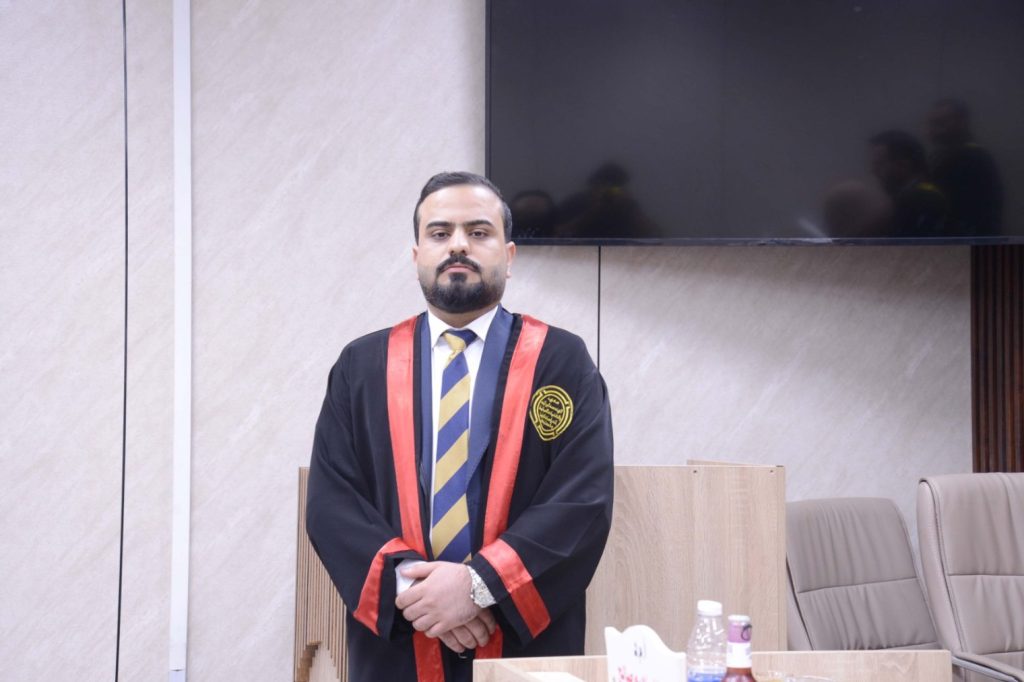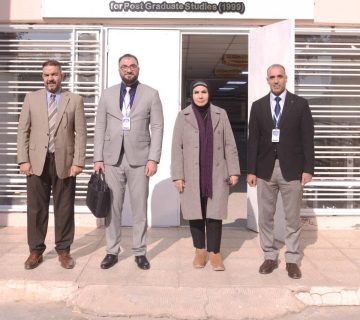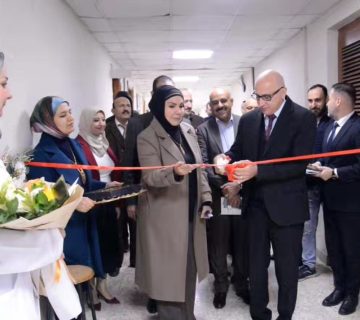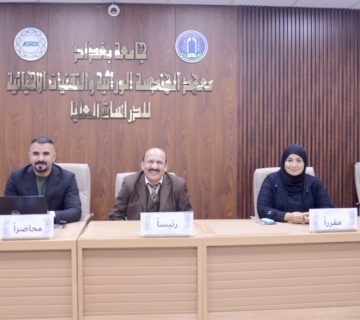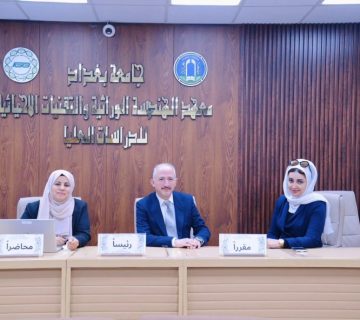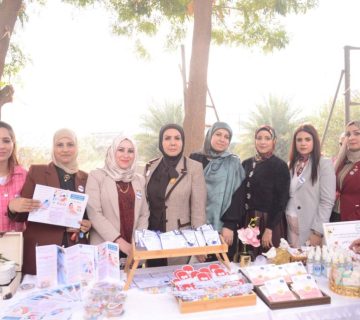The Institute of Genetic Engineering and Biotechnology for Postgraduate Studies at the University of Baghdad discussed the master’s thesis of student Yahya Mohammed Faleh, titled: “Evaluation of the Effectiveness of Tecoma Plant Extract as an Antimicrobial Agent Against Multidrug-Resistant Pseudomonas aeruginosa and Its Impact on the Gene Expression of mexA and mexB”, under the supervision of Asst. Prof. Dr. Maha Ibrahim Saleh.
The study aimed to evaluate the antibacterial activity of yellow Tecoma leaf extract against Pseudomonas aeruginosa isolates and to investigate the gene expression levels of mexA and mexB in Pseudomonas aeruginosa before and after treatment with the ethanolic extract of Tecoma leaves.
A total of 100 clinical samples were collected from burn and wound patients attending treatment at Al-Nasiriya General Hospital, Thi-Qar Province, between September 2024 and January 2025.
The results showed that the isolates were resistant to most of the antibiotics tested in this study, and ten multidrug-resistant isolates were selected for further analysis.
Yellow Tecoma leaves were collected from the garden of the Veterinary Medicine Complex, University of Baghdad, and the ethanolic extract was prepared using a magnetic stirring method.
The antioxidant activity assay revealed free radical scavenging rates of 95.70, 91.87, 76.35, 68.59, and 45.11% at concentrations of 10, 5, 2.5, 1.25, and 0.625 mg/ml, respectively.
The study concluded that the genes mexA and mexB were present in all selected isolates.
It also recommended that, given the significant reduction in the gene expression levels of mexA and mexB after treatment with the ethanolic extract compared to untreated isolates, the extract likely inhibits the efflux pump system responsible for antibiotic resistance in Pseudomonas aeruginosa.

